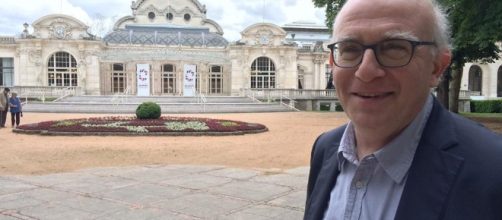Henry Rousso is one of the most popular scholars and intellectuals in France. Last week, as the historian attempted to enter the United States to attend an academic symposium in Texas A & M University, he was detained for more than 10 hours — for no clear reason. When he arrived at Houston’s George Bush Intercontinental Airport after an 11-hour journey from Paris, the historian has not been allowed to the U.S.
Henry Rousso responded on Twitter
On his Twitter account, Henry Rousso confirmed his detention and his immediate dismissal to France."I was detained for 10 hours at Houston International Airport, waiting to be deported, and the officer who arrested me was 'inexperienced'.
I confirm. I have been detained 10 hours at Houston Itl Airport about to be deported. The officer who arrested me was "inexperienced" https://t.co/SdIKWKQbnr
— Henry Rousso (@Henry_Rousso) February 26, 2017
Fatma Malouf's intervention
During his detention, the historian was able to contact Richard Golsan, research director at Texas A & M University, who then alerted Fatma Malouf, professor of law at the faculty, reports The Eagle. The intervention of Fatma Malouf allowed the release of Henry Rousso.
"When he called me two days ago, he was waiting for the immigration officials to send him back to Paris as an 'illegal immigrant' on the first available flight," Richard Golsan told The Eagle. According to him, there was an incomprehension on the visa with which Rousso traveled.
Henry Rousso as a scholar
Henry Rousso, a research director at the National Center for Scientific Research (CNRS), is known for his essay on the Vichy regime, Vichy Syndrome. He was born in Cairo in 1954 and left with his family two years later. Egypt is not on the list of seven countries whose nationals were banned from entering the U.S by the anti-immigration decree signed by U.S President Donald Trump in late January.
Rousso, 62, who specializes in memory and trauma, has written extensively on Holocaust-era France. According to his French-language Wikipedia entry, he was a visiting scholar in 2006 at the U.S Holocaust Memorial Museum.
"Thank you so much for your reactions. My situation was nothing compared to some of the people I saw who couldn't be defended as I was," he tweeted.
Thank you so much for your reactions. My situation was nothing compared to some of the people I saw who couldn't be defended as I was.
— Henry Rousso (@Henry_Rousso) February 26, 2017

